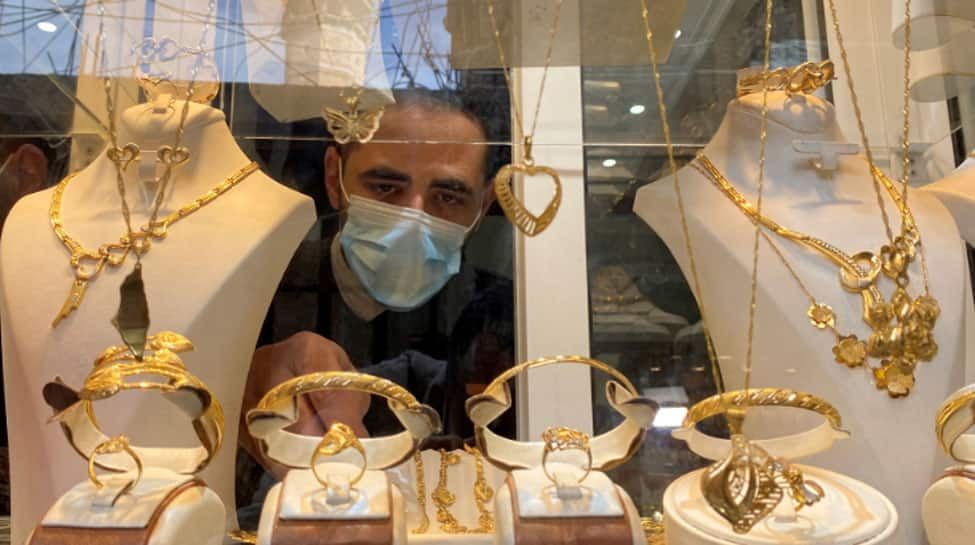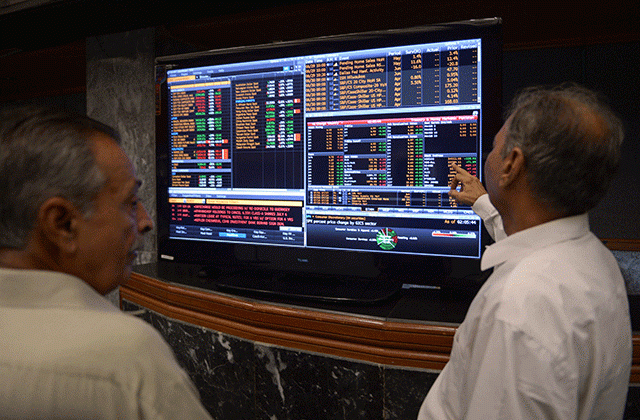Business
How ultra-rich families invest in sports, from major leagues to social clubs

SEATTLE, WA – SEPTEMBER 07: George Kittle #85 of the San Francisco 49ers celebrates with fans and teammates after scoring a touchdown against the Seattle Seahawks during the game at Lumen Field on September 07, 2025 in Seattle, Washington. (Photo by Robin Alam/Icon Sportswire via Getty Images)
Icon Sportswire | Icon Sportswire | Getty Images
A version of this article first appeared in CNBC’s Inside Wealth newsletter with Robert Frank, a weekly guide to the high-net-worth investor and consumer. Sign up to receive future editions, straight to your inbox.
While ultra-wealthy families and their investment firms are investing in fewer startups, they are still clamoring for a piece of the action when it comes to sports.
According to a new survey by Goldman Sachs, 25% of family offices have invested in sports or related assets like ticketing or arenas, and another quarter are interested in doing so.
Last week, Julia Koch, the widow of billionaire David Koch, and her family agreed to buy a minority stake in the NFL’s New York Giants, according to Bloomberg. In June, Guggenheim Partners CEO and billionaire Mark Walter reached a deal to buy a majority stake in the NBA’s Los Angeles Lakers at a valuation of $10 billion. And a trio of Bay Area families, including venture capitalist Vinod Khosla’s, bought a 6% stake in the San Francisco 49ers in May.
However, while women’s leagues and emerging sports like pickleball have garnered more buzz, investor appetite hasn’t caught up, according to the bank’s survey. Only 19% of 245 family offices said they had invested in or are interested in investing in women’s established leagues, while 71% expressed interest in major men’s leagues. A smaller percentage (16%) indicated past investment or interest in women’s emerging leagues or men’s minor leagues.
There are some high-profile examples, with a cohort of billionaire investors securing three new WNBA team franchises in June. However, these investors are betting on future equity growth rather than cashflow for financial return, as previously reported by CNBC’s Alex Sherman.
Goldman Sachs’ Meena Flynn told Inside Wealth that family offices, which invest for the long term, can afford to be patient with team ownership, no matter what kind of sports they’re getting into.
“It really combines their interests from a passion perspective as well as long term value creation,” she said.
Moreover, family offices see sports as hedges against inflation since they have multiple revenue sources such as streaming rights and ticketing, according to Flynn, Goldman Sachs’ co-head of global private wealth management.
Many major league owners are growing their sports empires by investing in other sports and related enterprises, such as Blackstone’s David Blitzer, the first person to own equity in all five major men’s U.S. sports leagues. This year alone, his family office Bolt Ventures has backed Fantasy Life, a sports betting media firm; Ballers, a chain of social clubs for racket sports; and club operator Padel Haus.
Business
Ryanair fined £224m in Italy over ‘abusive strategy’ with travel agencies

Ryanair has been fined 256 million euros (£224 million) by Italy’s competition watchdog for allegedly using an “abusive strategy” to hinder third-party travel agencies.
The regulator claimed in its ruling that the low-cost airline deliberately made it difficult for agencies to buy flights on its website, between April 2023 and at least April this year.
The Italian Competition Authority (AGCM) said: “Following a complex investigation, the authority found that Ryanair put in place an elaborate strategy affecting the ability of online and traditional travel agencies to purchase Ryanair flights on ryanair.com.
“In particular, the company’s strategy blocked, hindered or made such purchases more difficult… when combined with flights operated by other carriers and/or other tourism and insurance services.”
“These practices compromised the ability of agencies to purchase Ryanair flights and combine them with flights from other airlines and/or additional travel services, thereby reducing direct and indirect competition between agencies,” it added.
Ryanair said it would appeal the ruling and the fine, which it said was “unjustly levied”.
The Dublin-based carrier said: “Ryanair has campaigned for many years to offer consumers the lowest fares by booking directly on the ryanair.com website.
“This direct distribution model was ruled to ‘undoubtedly benefit consumers’ by the Milan Court, as recently as Jan 2024.”
Ryanair’s long-standing chief executive, Michael O’Leary, branded the ruling “legally unsound”.
He said: “This AGCM ruling is an affront to the precedent Milan court ruling, and also an affront to consumer protection and competition law.
“Ryanair has grown rapidly in Italy – and in many other markets across Europe – by always offering the lowest air fares in every single market in which we operate.
“This legally baseless AGCM Ruling, and its absurd 256 million euro fine, undermines consumer protection and competition law, and it will be overturned on appeal.”
It comes after Italy fined Ryanair 3 million euros (£2.6 million) in 2019 for its policy of charging passengers for cabin baggage, but the penalty was later overturned by an administrative court.
Business
IRCTC Down? Tatkal Ticket Users Complain Of Repeated ‘Error’ Messages On App; Netizens React; How to Book Train Tickets Online

IRCTC Tatkal Train Tickets: IRCTC’s Tatkal ticket booking service came under fire from netizens on Tuesday, with several users taking to social media to report repeated ‘Error’ messages on the app and website during peak booking hours. Many users said they were unable to secure Tatkal tickets despite multiple attempts, alleging that the system failed at critical stages of the booking process. The complaints emerged even as no major outage was officially reported by IRCTC.
IRCTC Down: Downdetector Shows 68% Outage
The online platform Downdetector recorded a spike in complaints, with 68% of users reporting issues with the IRCTC website. The outage reports mainly came from major metro cities such as Delhi, Mumbai, Bengaluru and Kolkata. Meanwhile, 31% of users said they faced problems with the mobile app.
IRCTC: OTP For Tatkal Train Tickets
Indian Railways is set to make one-time passwords (OTPs) mandatory for booking Tatkal train tickets from railway reservation counters, a move that officials said aims to curb the misuse of the last-minute ticket booking facility. Passengers will have to provide a one-time password, received on their mobile phones, to book Tatkal train tickets from railway reservation counters.
Business
Gold Prices Hit All‑Time High Of Rs 1,38,381 Per 10 Grams

New Delhi: The rates of gold and silver surged by over 1 per cent to hit fresh record highs on Tuesday, driven by safe-haven demand, notably due to escalating US-Venezuela tensions.
MCX gold February futures rose 1.2 per cent to an all‑time high of Rs 1,38,381 per 10 grams and were up 1.01 per cent as of 10.48 am.
MCX silver surged 1.7 per cent to a record high of Rs 2,16,596 per kilogram and was up 1.30 per cent as of 10.48 am. The dollar index had declined 0.20 per cent during the session, making gold cheaper in overseas currencies.
Heightened geopolitical uncertainty, notably escalating US‑Venezuela tensions, has underpinned the rally, analysts said.
The US Coast Guard this month seized a super tanker under sanctions carrying Venezuelan oil and tried to intercept two more Venezuela‑related ships over the weekend, heightening tensions, according to multiple reports.
“Safe haven bidding is featured to start a holiday‑shortened trading week, amid heightened geopolitical tensions,” Rahul Kalantri, VP Commodities, Mehta Equities Ltd, said.
Intensifying US-Venezuela tensions and the killing of a Russian army general in a bomb attack on Monday increased geopolitical risk and supported gold and silver, Kalantri said.
Both precious metals also gained after cooling-off US inflation and no bigger surprise from the Bank of Japan policy meetings last week, he added.
Gold has support at the Rs 1,35,550-1,34,710 zone, while resistance is at the Rs 1,37,650-1,38,470 levels.
Silver has support at Rs 2,11,150-2,10,280 zone while resistance is at Rs 2,13,810, 2,14,970 levels, the analyst said.
Aggressive central bank buying, expectations of US Fed rate cuts, concerns over the impact of US tariffs, geopolitical tensions, and robust inflows into gold and silver ETFs drove the gold and silver prices this year.
Domestic spot gold prices have surged 76 per cent year‑to‑date and international gold prices almost 70 per cent in 2025, on track for their strongest annual performance since 1979.
Both domestic and international prices of silver have gained about 140 per cent YTD.
-

 Business1 week ago
Business1 week agoStudying Abroad Is Costly, But Not Impossible: Experts On Smarter Financial Planning
-

 Fashion5 days ago
Fashion5 days agoIndonesia’s thrift surge fuels waste and textile industry woes
-

 Business1 week ago
Business1 week agoKSE-100 index gains 876 points amid cut in policy rate | The Express Tribune
-

 Sports1 week ago
Sports1 week agoJets defensive lineman rips NFL officials after ejection vs Jaguars
-

 Business5 days ago
Business5 days agoBP names new boss as current CEO leaves after less than two years
-

 Tech5 days ago
Tech5 days agoT-Mobile Business Internet and Phone Deals
-

 Entertainment1 week ago
Entertainment1 week agoPrince Harry, Meghan Markle’s 2025 Christmas card: A shift in strategy
-

 Sports5 days ago
Sports5 days agoPKF summons meeting after Pakistani player represents India in kabaddi tournament













